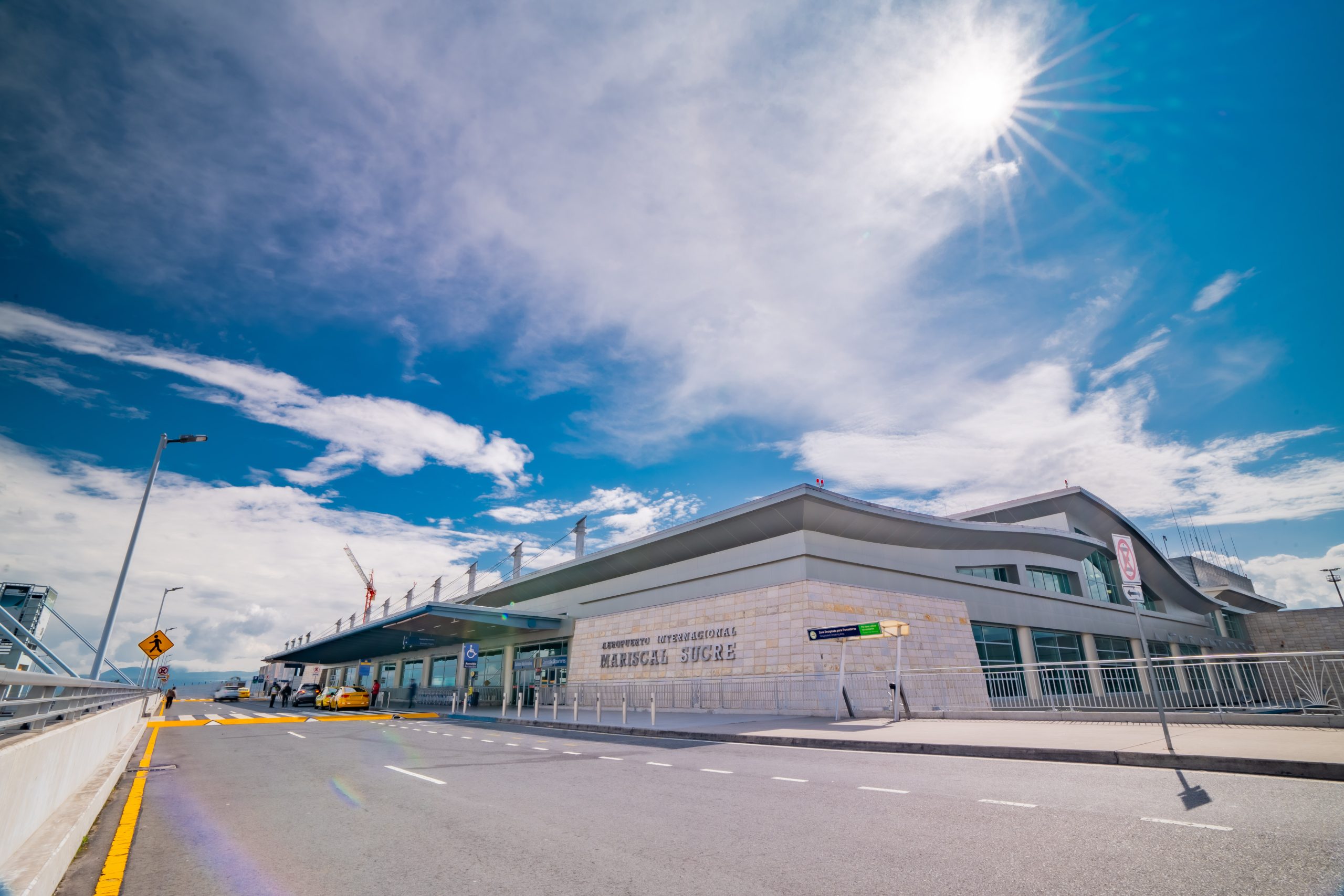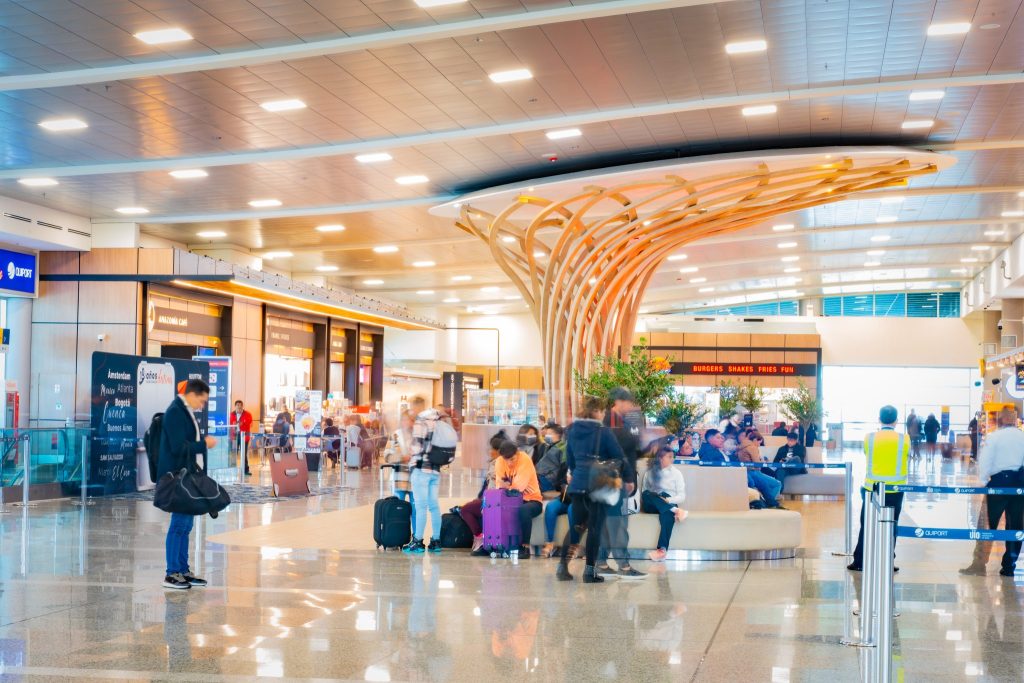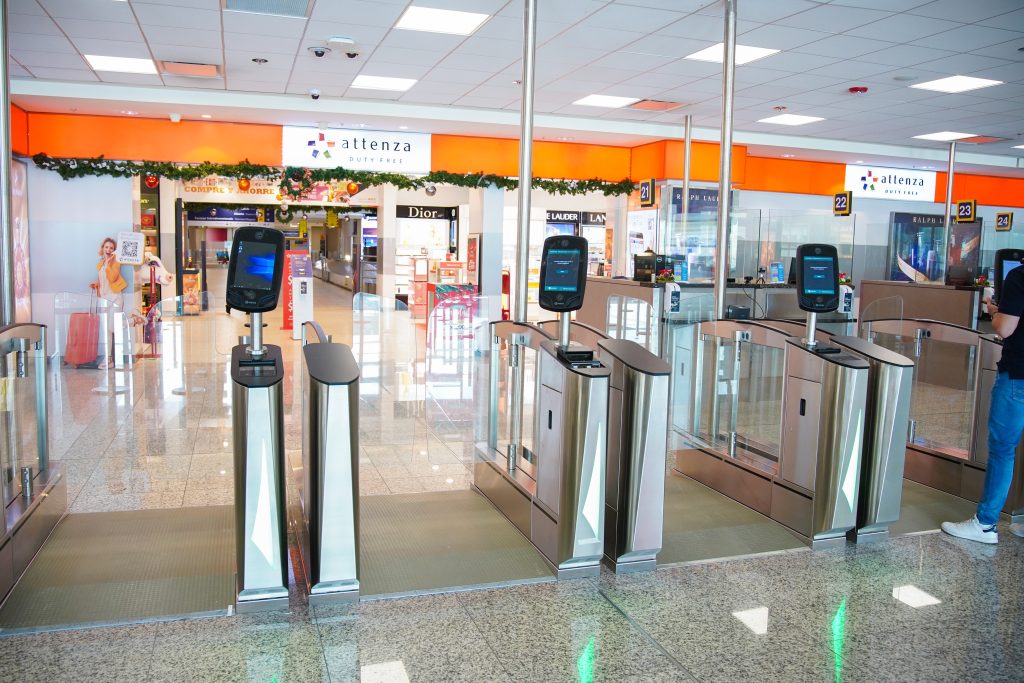2023 marked the definitive recovery of aeronautical activity at the Quito airport

The Mariscal Sucre International Airport in Quito closed 2023 with figures and amanagement level that evidence the recovery of air transport service, after three years in which, Quiport and the entire airport community, worked to overcome the effects of the Covid-19 pandemic that began in 2020 which represented the largest crisis in the history of air transport on a global scale.
Passenger traffic in 2023 reached 5.4 million passengers, exceeding the 5 million passengers in 2019, the reference year before the Covid-19 pandemic. 15 passenger airlines serve 18 direct international destinations and 8 domestic destinations, maintaining Quito as the best-connected city in Ecuador.
In 2022, total passenger traffic reached 4.3 million, still suffering the effects of the pandemic.
In addition, in 2023 four new international direct routes were opened to Medellín, New York, Cancún and Orlando, expanding the offer of non-stop destinations from Quito. Similarly, there was also an increase in capacity either with more frequencies or using larger aircraft on already established routes.
The performance of connectivity growth is a demonstration of the confidence of the airlines in the city and in the management potential of Quiport at the Mariscal Sucre airport. This important growth would not have been possible without the joint work between the Metropolitan Public Airport Services Company (EPMSA), the Ministries of Tourism and Transportation and Public Works, the airlines, the Directorate of Civil Aviation and Quiport as a concessionaire, offering favorable conditions so the new routes can be sustainable from the beginning of their operation.

Air cargo maintains its growth trend
In air cargo, Quito airport broke its historical record. 340 thousand metric tons of export, import and national cargo were transported in 2023, exceeding the 243 thousand metric tons in 2019 and 289 thousand metric tons in 2022. Regarding exports, 282 thousand metric tons left from the Quito airport. 92% corresponds to flowers, the main export product by air.
“The teamwork that was deployed in 2023 by Quiport and the entire airport community has been the key to the recovery of passenger traffic and the growth of cargo handled at the Quito airport. If we have learned something good from the crisis caused by Covid, it has been to develop the ability to reinvent ourselves and adapt to circumstances in order to find new solutions of doing things in a good way and as a team,” explained Ramón Miró, president and general director. of Quiport Corporation.
Technological transformation and infrastructure improvements
The results achieved in the management of the Quito airport are complemented by the execution of improvement works in the facilities and a technological transformation project aimed at enhancing efficiency, safety and traveler experience.
In terms of technology, the Mariscal Sucre airport became the first in the country to implement biometrics in airport processes. The project incorporates biometric systems for immigration control in international arrivals thanks to a public-private cooperation with the Ministry of the Interior. It also includes boarding on Delta airline flights to the United States, directly connecting the airline’s databases with the information from Customs and Border Protection of the United States, being the first airport in Latin America to incorporate this technology. And finally, automatic doors for access to security filters, facilitating the control process carried out by EPMSA.
In terms of facilities improvements, 3,260 square meters of ceramic were replaced with granite in the airline check-in areas, entry corridors to security filters and the departure migration room. Added to this are projects to remodel the security filter area and the reopening of the children’s play area in the national pre-boarding area.
Also in 2023, we began expanding the domestic VIP lounge to double its capacity in order to maintain the quality standard in service to users of this space.

Awards
The above-mentioned results and the management deployed this year did not go unnoticed by our passengers and the air transport industry. Quiport and the Quito international airport received more than 15 national and international awardss and certifications, including the following:
•Best Regional Airport in South America, Cleanest Airport and Best Airport Staff, by Skytrax’s World Airport Awards program.
•Best Airport in Latin America and the Caribbean in the category of 5 to 15 million annual passengers, Cleanest Airport, Most Pleasant Airport and Most Dedicated Staff, by the Airport Service Quality program of the Airport Council International.
•Level 5 – the highest level in the Airports Council International Passenger Experience Certification program. Only the airports in Incheon (South Korea) and Quito (Ecuador) have reached level 5.
•Leading Airport in South America by World Travel Awards.
•Several awards and certifications in the environmental and social responsibility dimensions.
“All these management milestones ratify the leadership of Quiport and the Mariscal Sucre International Airport on a national, regional and global scale, and at the same time, allow the Quito airport to be projected into the future to overcome new challenges and achieve increasingly higher goals in connectivity, passenger service, safety, efficiency and contribution to development within a sustainable management framework. Great things await us in the future. 2024 will be a year in which we will have even more positive news for the airport, the city and the country,” concluded Ramón Miró.
